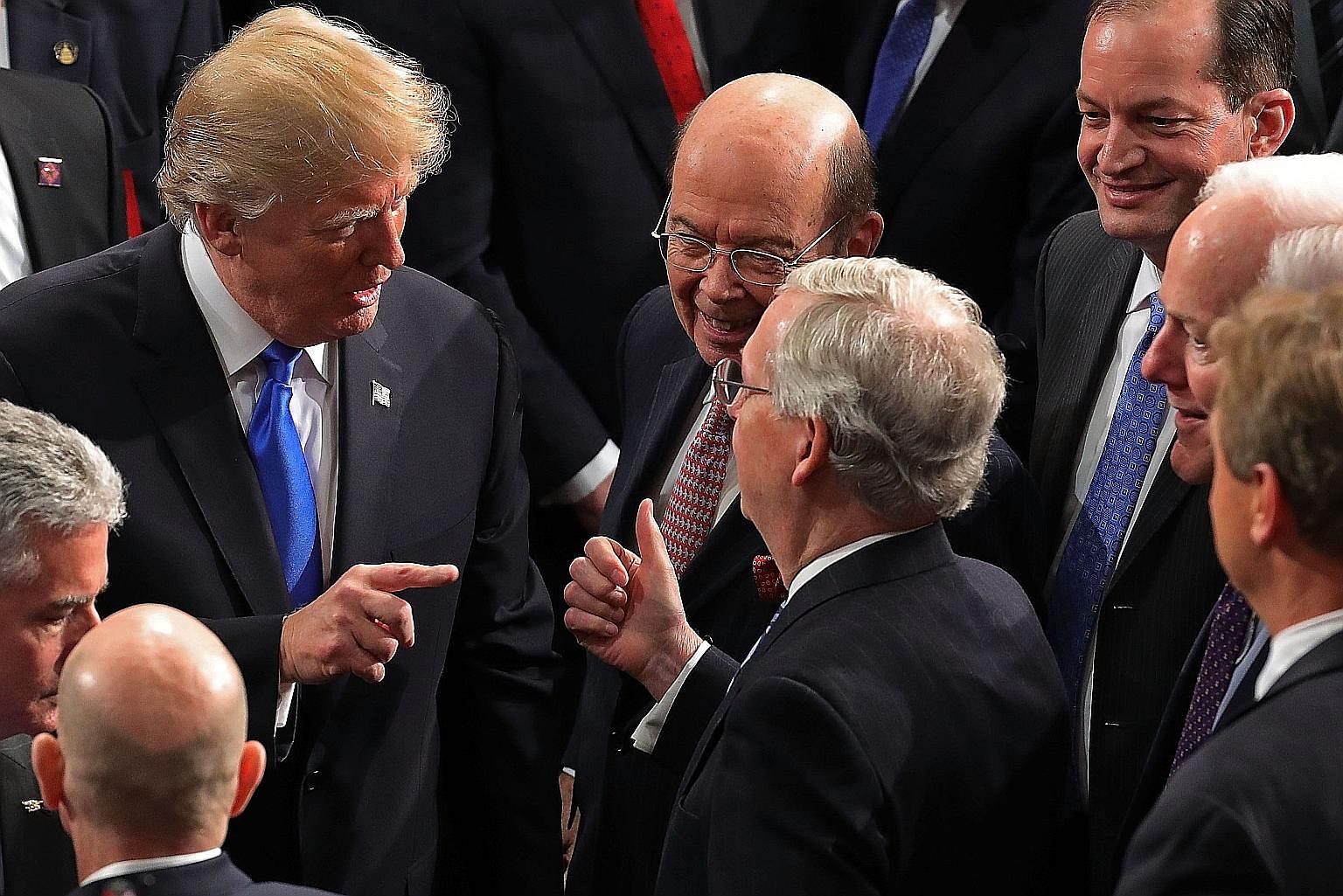President Donald Trump has upped his threats of action against countries with which the United States runs hefty trade deficits, particularly China, but there is concern about retaliation from China, even among the Republican base.
Apart from recent tariffs on washing machines and solar panels, the US looks likely to impose tariffs on steel and aluminium. Mr Trump has about 60 days left to decide whether to act under a 1962 trade law, which allows him to apply higher tariffs and quotas on imported steel and aluminium for national security reasons. This is mainly aimed at China.
The US is also tightening oversight over Chinese investment, and will soon release the results of a probe on intellectual property theft.
Most trade experts believe a trade war will damage both countries even if the US eventually emerges better off. And China this month singled out American sorghum for an anti-dumping investigation, showing that it can hit America where it hurts Mr Trump in particular.
"I don't know anyone who didn't expect this to happen," Mr Jeffrey Schott, a senior fellow at the Peterson Institute for International Economics told The Straits Times. "I suspect they have a tool kit that they are willing to deploy in a measured way if the US takes actions they think are not compatible with international treaty rights."
The largest sorghum producers in the US in terms of acreage are Kansas, Texas, Colorado, Oklahoma, and South Dakota.
China's investigations, which may take up to a year, signal that Beijing can inflict disproportionate pain on rural constituencies that voted for Mr Trump and his allies, said one analyst who asked not to be named.

"It's a shot across the bow as Trump decides whether to inflict tariffs on Chinese steel and aluminium imports," the analyst said.
"I get the strong sense that this will be a big element of China's strategy if a trade war really does take place - hitting US agricultural exports… in pro-Republican, pro-Trump constituencies before mid-terms, hoping that the Trump administration steps back."
A mid-term Congressional election is due in November, in which the Republican Party's majority in both houses will be strongly challenged. At a meeting at the White House on Monday with state and local government officials about the administration's infrastructure plan, Mr Trump said: "We are going to charge countries… that take advantage of the United States."
But the next day when Mr Trump raised the issue of steel and aluminium, Republican Roy Blunt of Montana warned him not to "start a reciprocal battle on tariffs". "We make aluminium and we make steel in Missouri, but we buy a lot of aluminium and we buy a lot of steel as well," he said.
Republican Senator Pat Toomey of Pennsylvania, highlighting the importance of steel to the defence industry, urged Mr Trump to "go very, very cautiously here".
Mr Schott said most Chinese steel is blocked from entering the US under existing anti-dumping and countervailing duty measures, with only about a million tonnes or maybe less going into the US.
"Chinese imports are not the cause of problems for the US steel industry. Chinese exports to other markets which have an effect on world steel prices is what affects the US steel makers," he added.
China has successfully played the interests of US politicians against each other previously, said Mr Schott.
In 1982, when the late Senator Jesse Helms from North Carolina tried to get Congress to slap tariffs on textiles from China, Beijing retaliated by telling another Republican Senator, Mr Bob Dole of Kansas, a major agricultural state, it may stop buying wheat. The bid to target textiles was withdrawn.
Mr Schott said: "It was tit for tat in the most simple yet effective way, textiles for wheat and Republican against Republican.
"And now the Chinese have more levers to pull, with a much bigger economy, more sophisticated knowledge of the trading system, a more extensive trading relationship with the US and many other suppliers who can fill in if they block products from the US."

